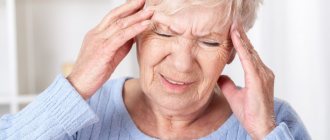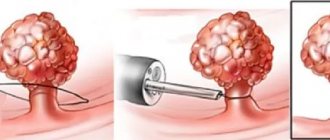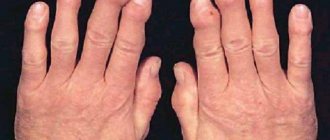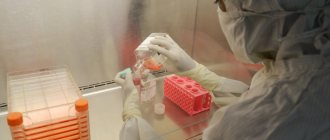Narcology is a branch of clinical medicine that includes the study and treatment of addiction to various chemicals and alcohol, as well as treatment of the consequences of addiction.
Addiction is a special psychological and physical condition of a person in which there is an irresistible craving for the subject of addiction: alcohol, drugs, tobacco and other substances.
Our clinic provides drug treatment services to patients suffering from all types of addictions. We provide the first consultation free of charge - don’t delay and contact us right now to save your loved ones!
How addictions manifest themselves
- Alcoholism – manifests itself in the form of constant drinking of alcohol. The addict is looking for excuses, trying to be more often in the company of people with whom he can drink. It’s not just hard drinks that cause addiction—most often it’s beer, wine, champagne, and liqueurs. Alcohol dependence is diagnosed by such signs as frequency of use, reluctance to give up alcohol, memory loss, binges, chronic hangovers, decreased intelligence, and aggression.
- Drug addiction is the use of substances included in the list of narcotic drugs. At first it manifests itself in the form of a sharp weight loss, the person becomes irritable, over time, drug use becomes the only meaning of life, complete apathy is observed, and suicide attempts are not excluded. A person who has fallen into the network of drug dealers is intoxicated; now only relatives and specialist doctors can help him.
- Substance abuse is the inhalation and use of various chemical substances that are not included in the list of drugs. This dependence can be detected by paying attention to increased salivation and lacrimation, aggressive behavior, sallow skin color, poor coordination of movements, and memory lapses.
- The smoker is identified by the unpleasant odor that comes from clothes, skin and hair. You can notice a gray-sallow complexion, yellow fingers and teeth, and a low, smoky voice. All smokers are addicted; there is no other way to explain a habit that destroys health.
In our clinic you will receive help for addiction of any kind. Treatment is carried out anonymously - a person can even register with us under a fictitious name.
What diseases can a narcologist cure?
An addiction specialist will help you get rid of the following ailments:
- Alcohol-induced depression;
- The so-called “pseudoparalysis”; impaired speech, vision, coordination of movements, damage to internal organs caused by alcohol consumption;
- Epilepsy caused by binge drinking;
- Delusional paranoid psychosis in the acute phase, caused by prolonged alcohol consumption, is accompanied by delusions, obsessions, illusions and other mental problems;
- One of the variants of alcoholic encephalopathy is Korsakov’s alcoholic psychosis (serious memory impairment);
- The so-called “delirium tremens”;
- Delusions and hallucinations of alcohol origin;
- Drug addiction;
What is the danger?
The addict believes that he is able to quit on his own, he assures his family of this, but without the help of doctors it is no longer possible to get rid of physical addiction, and sometimes it is very dangerous. Help for addicts consists of a whole range of activities with the participation of narcologists, chemical dependency specialists and psychologists. It is important to seek help in time, because such diseases cause irreparable harm to the addict.
- The state of health gradually deteriorates, frequent headaches, dizziness, problems with appetite, and weight fluctuations are observed.
- The perception of the surrounding world is disrupted - a person cannot adequately assess everything that is happening, which leads to problems at work and in the family.
- In a sober state, the addict may realize that he is harming himself, but he can no longer stop. Hence the feeling of fear, anger, apathy, thoughts of suicide.
- A person is ready to spend all his money on acquiring the object of his addiction; if there is not enough money, addicts sometimes stoop to theft and other violations of the law.
- Uncontrolled behavior leads to promiscuity and lack of hygiene; a person stops taking care of himself, thereby increasing the risk of contracting deadly infections hundreds of times.
- More than 1,000,000 addicts die in Russia every year. People suffering from alcoholism, drug addiction and smoking are 60% more likely to suffer from cancer, pancreatitis, liver cirrhosis, cardiovascular diseases, bronchitis and emphysema. They also become involved in road accidents, get hit by trains, and get involved in fights.
Removing addiction is necessary not only to save the patient’s health and life, but also to ensure that the person remains a full-fledged individual and a member of society.
Is drug addiction a disease?
Addiction begins with the wrong choice. But one cannot categorically perceive craving for drugs as a bad habit. This is a serious disease that cannot be overcome with willpower!
Therefore, the most effective method of fighting drugs is timely prevention: informing adolescents about the consequences of drug addiction, forming trusting relationships in the family and team, and saturating their leisure time with useful activities.
Healthy people with a stable psyche, who understand themselves and those around them well, are not prone to addictions to the same extent as people with mental and psychological problems.
The effect of drugs on the body is incredibly destructive. The cardiovascular system gets hit the hardest. Blood pressure decreases, oxygen deficiency occurs, metabolism and oxygen starvation of internal organs are disrupted. Heart function deteriorates. Pneumonia often occurs.
Under the influence of drugs, the digestive system suffers. The drug addict's appetite decreases, nutrition becomes irregular and inadequate. The ability of the intestines to contract is impaired, and nutrients are no longer absorbed by the body. The liver, which is responsible for removing toxic substances from the body, is not in a better position. The risk of cirrhosis increases.
Long-term drug abuse by men leads to impotence and other dysfunctions of the genitourinary system.
If you smoke a drug, your lungs suffer greatly. Even smokers of “harmless” marijuana suffer from chronic bronchitis and have an increased likelihood of developing lung cancer.
Treatment of drug addiction and alcoholism
The problem of alcohol and drug addiction is familiar to the specialists of our clinic firsthand, and we can say with confidence that we need to fight!
The addict is not able to control his life, now his life is in the hands of his loved ones, that is, in your hands.
To save a person, the main thing is to seek help as soon as possible! The sooner you start treatment, the less chance you have of remaining disabled or simply not having time to recover - many narcotic substances “kill” addicts in a matter of weeks.
Timely treatment, compliance with all doctors’ recommendations and help from the addict’s family will do their job, and the person will return to normal life.
Our clinic provides comprehensive treatment for addicts, which includes:
- consultations with a narcologist, psychologist, psychotherapist and psychiatrist;
- calling a doctor at home;
- droppers;
- coding;
- rehabilitation;
- resocialization.
For each patient, doctors draw up an individual treatment program, appoint a consultant, and inform relatives about the patient’s condition throughout the course of treatment.
We work legally, do not use prohibited or inhumane methods of influence, but the patient can count on complete anonymity. Strangers are not allowed into the clinic territory - only relatives of patients. We carry out all tests ourselves, we do not transfer information anywhere and we do not register patients.
An appointment with a narcologist: what does it look like?
To develop a treatment strategy, the doctor must get to know the patient better - find out the characteristics of his personality, understand how much the patient’s psyche and intellectual abilities have suffered, how much he has retained adequacy, and how he perceives his own personality.
The doctor will also find out during the conversation how long the patient has been using alcohol or drugs, and will get an idea of how exactly the addiction manifests itself. Each patient has a different duration of binges and a different dose of the drug required to enter a state of euphoria. Information on the maximum period of abstinence is also collected. The doctor must also know whether the patient has tried to be cured before and how many times he has done this.
A drug addiction specialist also finds out whether the patient has health problems - whether everything is in order with his internal organs.
When the doctor has finished talking to the patient, he will perform an examination to get a clearer assessment:
- General health of the patient;
- Its physiological parameters (weight, weight-to-height ratio);
- Tone of the nervous system and muscles;
- The presence or absence of skin diseases and injuries;
- Pulse and blood pressure in the arteries:
- Breath.
If necessary, a narcologist can recommend another doctor - a neurologist, psychiatrist, therapist and others. When the appointment comes to an end, the doctor diagnoses the patient and gives his recommendations on how to get rid of the disease.
Help for relatives
Addicts and their loved ones need various types of help; narcology is the main, but not the only area of activity of our clinic. The psychological factor plays an important role in the process of treatment and rehabilitation.
Not only the patient, but also his relatives are assisted by a qualified psychologist. Group meetings with a psychologist are provided - people who are united by a common misfortune can communicate, speak out, find solace, and learn how to behave correctly in a difficult and scary situation.
Often the addict refuses to voluntarily seek help; addiction therapy seems powerless to him and therefore unnecessary. It is important to convince the addict that treatment is necessary and that treatment will help! A team of specialists from our clinic can go to your home - the doctors will convince the addict to go for treatment, if necessary, carry out detoxification and take him to the clinic.
Comprehensive help for drug and alcohol addicts is an opportunity to return a person to a normal life, restore a family, get a job, find friends and hobbies. Stop living in constant fear for the person you love; it is in your power to help him. Getting rid of addictions is real!
Addiction treatment in Krasnodar, Karasun district, st. Fabrichnaya 5
What does a narcologist do?
A narcologist provides professional assistance in the field of addiction. It can be either primary or repeated. It is possible to provide assistance to a person in a clinic, in an office at the place of residence, and even at home.
At the first meeting of the patient with the doctor, the person is diagnosed and the amount of necessary therapy is determined, and the patient is sent to undergo the necessary tests and undergo instrumental examinations.
Repeated consultations are aimed at clarifying the diagnosis, studying the information obtained from examination results and building a treatment regimen. It is possible that the patient may require inpatient therapy.
A narcologist can:
- Professionally get a person out of binge drinking;
- Help overcome addiction;
- Help you cope with withdrawal symptoms more easily;
- Organize drug and non-drug treatment;
- Perform a medical examination;
- Register with a dispensary;
- Remove from dispensary registration;
- Help challenge the results of an already completed examination.
It is possible to undergo anonymous counseling in a narcologist's office.
Cost of services
| Name of service | Price |
| Consultation with a specialist by phone | for free |
| Consultation with a narcologist-psychiatrist in the clinic | for free |
| Development of an individual treatment plan | 1500 rub. |
| Intervention | from 3000 rub. |
| Transfer to the center | from 3000 rub. |
| Hospital | from 6000 rub. per day |
| Coding | from 3000 rub. |
| Rehabilitation | from 1666 rub. per day |
| Drug testing (DTA) | 2800 rub. |
| Working with codependents | first visit is free |
Who is a narcologist?
To have the right to work as a narcologist, you must have a diploma from a higher educational medical institution and additionally obtain a specialization in narcology. Most often, narcologists become psychiatrists, or resuscitators and anesthesiologists, having received additional education.
A narcologist can work at a site in a district clinic. He consults patients, performs treatment in an outpatient setting, or issues a referral regarding the need for inpatient treatment. In addition, the local narcologist makes home visits to patients and, if necessary, interacts with the police department.
A doctor working in a drug treatment hospital treats patients with mental disorders (for example, alcohol delirium), and works with drug addicts and alcoholics during the period of abstinence.
A narcologist is also needed in the examination departments in order to carry out medical examination procedures.
Drug addiction doctors also work professionally in rehabilitation centers, where people with addictions try to get rid of them after the abstinence stage has been overcome.
Reviews about drug treatment
Leave feedback
- Marina wife
My husband drank constantly, went on binges... After a 7-day binge, he began to get sick, they called narcologists and dug him out. As soon as he came to his senses he started drinking again and so on in a circle. I didn’t stay at work long before I got fired when I started drinking. I suffered for many years and decided to leave him... We have a small child, I didn’t want him to see all this and grow up the same way. When I left, my husband got scared, he came back and promised to stop drinking, to get into code, and said that he himself was tired of living like this. I didn’t believe it, but decided it was worth a try. We went to the Emercon clinic for a consultation, they told us about different types of coding. We decided to try the Dovzhenko method, especially since they told us that they have a doctor who specializes in this technique. The husband said that after the procedure he did not notice anything special, there were no unpleasant sensations. At first it was difficult, he didn’t understand how to live without alcohol and what to do, his friends were always calling and inviting him to drink. Then he adapted, found a job, spends more time with his child and doesn’t drink at all for half a year. Coded for 3 years.
07.03.2019
Leave feedback
Tell us what you think about us so we can do our job even better!
Symptoms indicating the need to contact a psychologist-narcologist
Often a person uses any chemical substances, but does not suspect that he has developed an addiction. For example, let's take alcohol - most people over 18 (and younger) drink alcohol. Some once a year at Christmas, others several times a week, on weekends or every day after work. And many people do not realize that at some point drinking alcohol turns from a pleasant way to relax into a habit. And then into addiction, in which you cannot do without the help of a psychologist-narcologist. Therefore, we will consider the main symptoms that may accompany the physiological state of dependence on alcohol, narcotic substances, and psychotropic drugs. As well as symptoms that arise against the background of mental or emotional dependence.
Signs that indicate that you need to see a addiction psychologist:
- It is impossible to live without a certain substance for a long time (alcohol, pills, cigarettes, etc.). The occurrence of withdrawal syndrome (withdrawal, withdrawal syndrome) in case of refusal to use a substance or reduction of its dose after repeated, in most cases long-term use.
- Depression arising from addiction, manic-depressive syndrome.
- Feelings of anxiety , stress, fear.
- Phobias or paranoia, obsessive, panic states.
- Hallucinations - both auditory and auditory
. - Personality disorders , bipolar disorders, schizophrenia.
- Physiological abnormalities in brain function , up to the state of dementia. Decreased mental abilities, degree of concentration, slowness of thinking, dementia.
- Reluctance to live , tendency to commit suicide or suicide attempts.
- Convulsions , epileptic attacks, dizziness, fainting.
- Disruption of the central nervous system , manifested by irritability, aggressiveness, chronic fatigue, and sleep problems.
- Lack of appetite , the need to eat a normal amount of food. Or vice versa, overeating. Often with artificially induced vomiting after eating.
- Tremors of the hands or other parts of the body, especially worse in the morning or under stress.
- Defiant behavior in adolescents , a tendency to assault and conflict in adults.
- Sexual disorders , especially if they worsen while taking substances on which the patient is dependent.
- Decreased self-esteem , indifference to one's appearance. Lack of basic signs of self-care.
- Lack of interest in the outside world , detachment, isolation, cutting off contacts with relatives and friends.
The most objective people in assessing the state of a dependent person are the people who surround him, with whom he has more or less regular contact. But in the first stages of addiction, many patients manage to quite successfully hide their problem and lead a relatively normal lifestyle. As addiction progresses, it will become increasingly difficult to hide it as characteristic signs appear.
Therefore, if you know or suspect a pathological tendency or addiction of a person close to you, it is better to contact a psychologist-narcologist as early as possible, without waiting for severe symptoms to arise and addiction to take root.
A psychologist-narcologist answers frequently asked questions in the video:
to contents ^
Our specialists will help you
Gornostaev Nikolay Sergeevich
Specialization:
psychologist
Experience:
20 years
City:
Krasnodar
Bogdasaryan Gor Armenovich
Specialization:
psychologist, addictionologist
Experience:
7 years
City:
Krasnodar
Savkin Ivan Nikolaevich
Specialization:
addictologist
Experience:
7 years
City:
Krasnodar
Sokolov Nikolay Petrovich
Specialization:
addictologist
Experience:
12 years
City:
Krasnodar
Prokhorov Andrey Mikhailovich
Specialization:
administration
Experience:
City:
Krasnodar
Prokhorova Svetlana Mikhailovna
Specialization:
administration
Experience:
City:
Krasnodar
Goncharenko Nadezhda Mikhailovna
Specialization:
spiritual practitioner
Experience:
15 years
City:
Krasnodar
More about specialists
Drug test
A drug test can be done at home. Using it, you can find out with up to 98 percent probability whether a person uses drugs.
What is a drug test
A drug test detects the presence of narcotic substances in human biomaterials. By reacting with urine or saliva, the indicator shows the presence of traces of heroin, hashish and other drugs in the body. The home test has a fairly high sensitivity - amphetamine or heroin is detected five days after use, and marijuana - after 2 weeks.
What does it look like
A pharmacy drug test is a paper strip impregnated with special reagents. Urine or saliva is used for testing, interpretation is carried out in accordance with the instructions.
Photo
Figure: What a drug test looks like
How to use a drug test at home: instructions
To get the correct result, it is important to follow the instructions. Urine testing requires the use of sterile plastic containers. At the same time, it is important to ensure that it is not possible to replace the biomaterial. The collected urine can be kept in the refrigerator until purchasing the test, but no more than 2 hours. Before testing, you need to leave the test container at room temperature for half an hour.
The strip is lowered into the urine to the specified limit, the result can be assessed after 5 minutes. The presence of one strip in the control area indicates the presence of drugs. If two stripes appear - both in the test area and in the control area, the result - no drugs were detected.
Figure: How to use a drug test
What does a drug test show?
The home testing method allows you to identify the following narcotic substances:
- Marijuana.
- Heroin.
- Morphine.
- Amphetamine, methamphetamine.
- Cocaine.
- Methadone.
- Barbiturates.
- Psychotropics.
- Benzodiazepine.
The use of so-called spices cannot be detected at home - the composition is constantly changing, which complicates diagnosis. If the person being tested does not behave quite adequately, and the test strips show a negative result, it makes sense to contact the clinic for a detailed analysis.
How are drug addiction tests done in the hospital?
A test at a drug dispensary will give a more accurate and detailed result. The laboratory can examine not only urine, but also blood, saliva, and hair. For example, heroin accumulates in hair tissue, so it will be possible to find out about its use even after 2-3 months. For a hospital examination, you need a referral, as well as a license from the institution to conduct this type of research. An official conclusion is drawn up by a doctor.
Where is mandatory drug testing required?
A drug intoxication test is carried out if traffic police officers have reason to believe that a person is under the influence of alcohol or drugs. If alcohol is determined by a breathalyzer, then the presence of narcotic substances is detected only in a specialized laboratory. Refusal of a medical examination is an automatic recognition of an inadequate condition.
Almost all civil service employees undergo mandatory drug testing when applying for a job. For example, to the police. In addition, foreign citizens must undergo a medical examination to obtain a work permit in the Russian Federation. Pilots, athletes, machinists, astronauts - there are many professions where workers are constantly checked.
As for analyzes in schools, colleges and institutes, everything is on a voluntary basis. Although the statistics are sad - almost 40 percent of teenagers over the age of 12 have tried drugs. Testing in educational institutions is not aimed at punishing the student, but at the early detection of drug addiction. The earlier the problem is noticed, the greater the chance of treating the teenager.
Free test
Free testing is carried out only in situations where medical research is required, for example, traffic police officers in controversial situations. An employer can also pay for a drug test for employees, but purely at will. You can refuse such a check, but this will involuntarily arouse suspicion.
Fig.: Drug test











